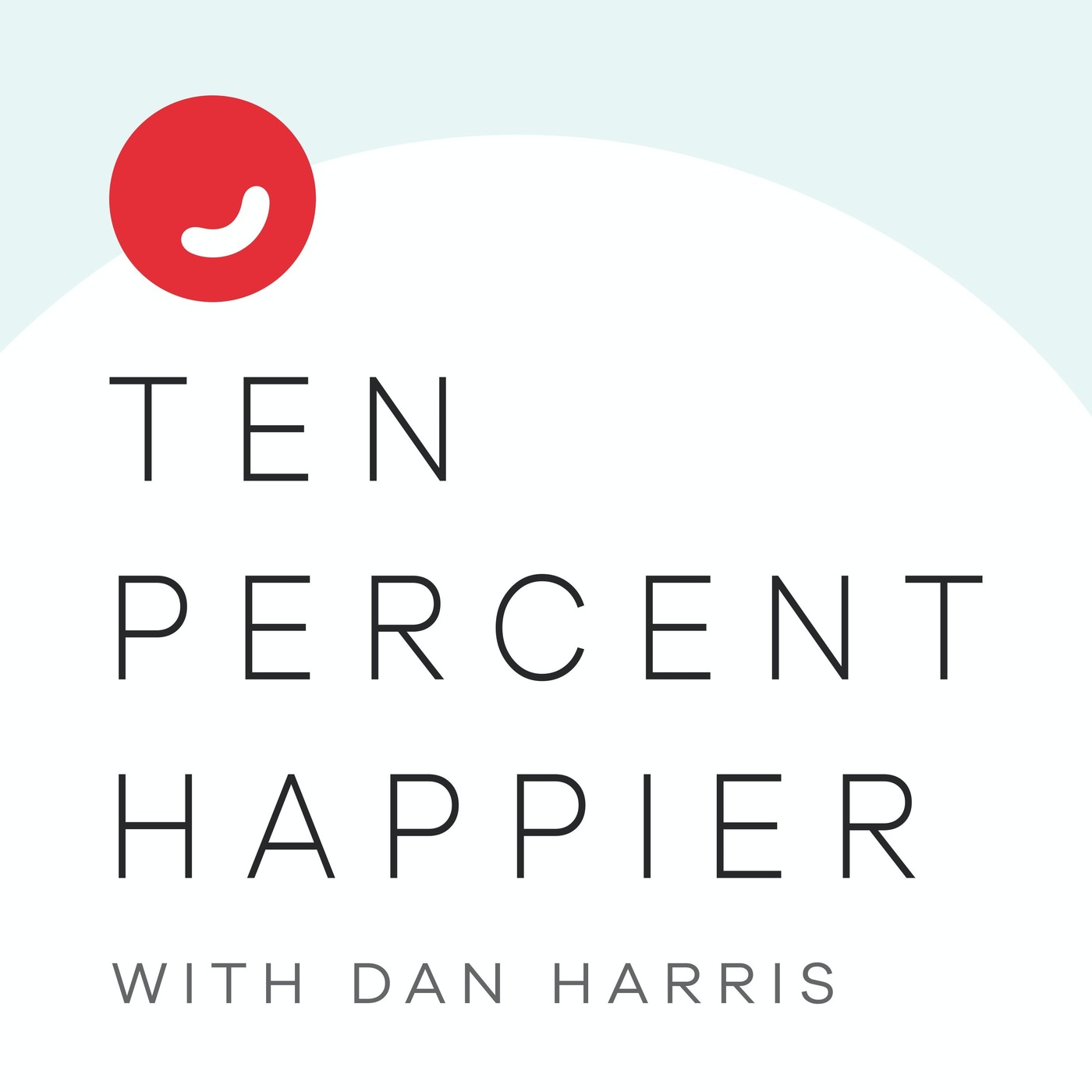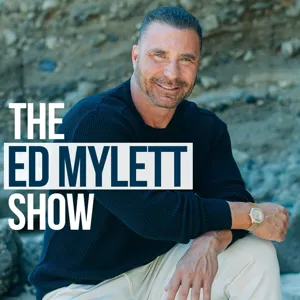Podcast Summary
Addressing Implicit Biases for Personal and Professional Growth: Acknowledging and addressing implicit biases is crucial for personal and professional success, and essential for creating a more equitable society. Being open to learning and growth is more effective than shaming for change.
Our minds are trainable, and developing skills like peace of mind, equanimity, happiness, and the ability to work with our biases is not only beneficial for creating a better world but also crucial for personal and professional success. Dolly Chug, a professor at NYU, emphasizes the importance of addressing implicit biases and unintentional unethical behavior. She suggests that shaming people for their biases is ineffective and encourages a mindset of being "good-ish people" who are open to learning and growth. By acknowledging and addressing our biases, we can improve our ability to work effectively with diverse teams and contribute to a more equitable society.
The Elephant and the Rider: Understanding Unconscious Biases: Recognizing and addressing unconscious biases, including those related to race, gender, and politics, is crucial for personal growth and better relationships.
Our unconscious minds play a significant role in shaping our biases and behaviors, often outside of our conscious awareness. The mind can be seen as an elephant with a rider, where the unconscious mind is the elephant with immense power, and the conscious mind is the rider. A large portion of our thoughts, around 11 million per moment, occur unconsciously. This is essential for efficient functioning, but it also means that some unconscious thoughts or biases may lead us astray from our intended actions or beliefs. The speaker, who identifies as a woman of color and a child of immigrants, emphasizes the importance of recognizing and addressing biases, including those related to race, gender, and political beliefs. She is writing a book on becoming a better person by understanding and bridging the gap between our conscious intentions and the unconscious biases that can influence our actions.
Recognizing and dealing with implicit biases: Acknowledging our biases is crucial for personal growth and a more inclusive society. It's not about being perfect but noticing and addressing biases when they arise, and striving to be a 'goodish person' open to learning and growth.
Recognizing and acknowledging our biases is an essential step towards personal growth and creating a more inclusive society. The speaker shares an experience of being surprised to see black parents playing the roles of the king and queen in a children's show, revealing her unconscious bias. She emphasizes that it's not about eradicating biases completely but rather noticing and dealing with them when they arise. The speaker also critiques the potential downsides of political correctness, arguing that it can induce shame and hinder open dialogue. Instead, she proposes the concept of being a "goodish person," a work in progress who is open to learning and growth when biases are identified. By embracing this mindset, we can create a culture where acknowledging implicit biases is met with understanding and self-improvement rather than shame or backlash.
Balance of heat and light for effective social change: Effective social change requires a balance of confrontational and educational approaches. Excessive heat can be counterproductive, while a thoughtful and balanced approach is necessary for bringing about meaningful change.
Effective social change requires a balance of both heat and light. Heat, which can be thought of as radical or confrontational approaches, and light, which can be thought of as educational or conciliatory approaches. Movements that rely exclusively on one or the other have not been as successful as those that utilize both. However, excessive and unnecessary use of heat can be counterproductive and shut down learning. It's important to approach conversations with an open mind and be receptive to constructive criticism, even if it's delivered in a confrontational way. Additionally, changing norms, even without changing attitudes, can lead to desirable behavioral changes. Ultimately, a thoughtful and balanced approach is necessary for bringing about meaningful social change.
Creating a supportive environment for growth: Effective communication requires validation and admitting mistakes to foster growth and change. Leaders should model this behavior to create a culture of learning and inclusivity.
Creating a supportive and validating environment is crucial for effective communication and fostering growth and change. This can be applied to both personal relationships and professional settings. Criticism without validation can hinder progress and create conflict. Admitting mistakes and making learning visible can lead to healthier personal and organizational growth. It's important for leaders to model this behavior and create a culture where individuals feel comfortable sharing their experiences and learning from them. This can ultimately lead to increased understanding, empathy, and a more inclusive and diverse workplace.
Creating a culture of learning and growth: Balancing transparency, trust, and humor fosters a culture of learning and growth in the workplace. Everyone's learning is valued, and humor can be inclusive. Creating an atmosphere where everyone feels safe to share experiences and perspectives is crucial.
Creating a culture of learning and growth in the workplace requires a balance between transparency, trust, and humor. According to Dan Harris, admitting and addressing personal biases and shortcomings is essential, but it's crucial to ensure that employees feel safe and supported in doing the same. Research shows that those in marginalized positions may face negative consequences for speaking up, so it's essential to create an atmosphere where everyone's learning is valued and visible. Moreover, humor can play a significant role in fostering a productive and inclusive work environment. However, it's essential that the humor is not at anyone's expense and that everyone feels comfortable participating. Dan shared that at his previous workplace, Nightline, the joking culture was effective because it was inclusive, and he was the frequent target of the jokes. In contrast, at 10% Happier, Dan felt that the culture could benefit from more levity and less caution. Ultimately, creating a workplace culture that encourages learning, growth, and inclusivity requires courage, vulnerability, and a sense of humor. It's essential to remember that everyone makes mistakes and that learning from them is an ongoing process. By fostering an environment where everyone feels comfortable sharing their experiences and perspectives, we can create a workplace where everyone can thrive.
Building trust and fostering a growth mindset for diversity and inclusion: Self-deprecation and humor can build trust, but providing opportunities for interdependence and social activities are crucial. Updating our beliefs about diversity and inclusion is essential for becoming more inclusive and less biased.
Creating a workplace where trust is built and maintaining a growth mindset towards diversity and inclusion are essential for fostering a relaxed and enjoyable work environment. Self-deprecation and humor can help establish trust among team members, but it's also crucial to provide opportunities for interdependence and social activities. Updating our knowledge and beliefs about diversity and inclusion as a constant process can help us become more inclusive and less biased over time. In essence, embracing the idea of being "goodish" - acknowledging our complexities and flaws while striving for improvement - is a powerful step towards building more inclusive communities and workplaces.
Audit media consumption and social connections for unconscious biases: Conducting an audit of the voices and content we engage with can help identify blind spots and seek out diverse perspectives, leading to more inclusive actions and interactions.
Becoming more inclusive and aware of unconscious biases is a learnable skill, not just a matter of belief. It involves actively noticing and challenging the biases we unintentionally feed through our daily media consumption and social connections. For instance, conducting an audit of the voices and content we engage with can help us identify blind spots and make a conscious effort to seek out diverse perspectives. As Rick Clow, a senior executive at Google Ventures, discovered, this simple action led him to realize the importance of including more women in his professional network and broadening his understanding of the experiences and challenges they face. While biases are a natural part of our evolution, it's essential to be aware of the potential pitfalls and make a conscious effort to mitigate their impact on our actions and interactions with others.
The 2060-20 Rule: Engaging the Middle 60%: Identify three groups in discussions on important issues: those fully on board (20%), those against (20%), and the large middle group (60%). Engage in learning conversations with the first, signal unacceptable behavior with the second, and use humanizing stories and data to persuade the middle group.
When encountering situations where we can constructively engage with others on important issues, it's crucial to identify the group of people involved and approach them effectively. The 2060-20 rule suggests that there are three groups: those who are fully on board with change (20%), those who are against it and unlikely to change their minds (20%), and the large middle group (60%) that is not deeply engaged and can be swayed. When dealing with the first 20%, engage in learning conversations. With the bottom 20%, signal that certain behaviors or language are not acceptable from a norm standpoint without getting into lengthy arguments. For the middle 60%, use humanizing stories and data to persuade them. A personal example given was when Dan Harris, the author, encountered someone who referred to meditation as "retarded" in one of his books. Instead of lecturing or shaming the person, Harris shared a story about how that word affected someone close to him, and the person was moved by the humanizing story. Overall, the 2060-20 rule offers a practical way to approach conversations on important issues and have a meaningful impact on the middle group.
Navigating Complex Situations in Inclusive Workplaces: Assess situations using 206020 rule, address issues in the moment or privately later, use humor to defuse tense situations, improve interviewing techniques, and practice self-awareness through meditation to foster inclusive workplaces.
Creating an inclusive workplace goes beyond just recognizing and addressing inappropriate behavior; it also involves being proactive in our actions and mindsets. The 206020 rule can help us navigate complex situations by quickly assessing the context and deciding whether to address the issue in the moment or privately later. Using humor to "bust a norm" can also help defuse tense situations. Another important skill is improving our interviewing techniques to focus on behavioral questions and avoid favoring candidates based on shared backgrounds. Meditation is a promising practice for increasing self-awareness and surfacing unconscious biases, although more research is needed to fully understand its effects. Overall, being an ally for diversity and inclusion requires ongoing effort and learning.
Cultivating self-awareness through meditation: Meditation helps recognize thoughts as impermanent, reducing harmful impulses and fostering personal growth
Developing a non-judgmental awareness of your thoughts and actions, even those that are unpleasant or shameful, can help you grow and improve behavior. This practice, which is a key component of meditation, allows you to recognize these thoughts as impermanent and not a reflection of your identity. While it may not bring all of the unconscious mind to the surface, consistently applying this mindset can make you more sensitive to your thoughts and actions, making you less likely to act on harmful impulses. This attitude of self-awareness and growth, also known as a growth mindset, has been extensively studied and proven to improve skills and behavior across various domains. By embracing this mindset and sharing your experiences with others, you can create a supportive community for personal growth.
Measuring Unconscious Biases with the Implicit Association Test: The Implicit Association Test (IAT) is a tool to measure unconscious biases, but its reliability is debated and should be used as one part of self-reflection. Take it multiple times and focus on reducing their impact on actions and decisions.
While everyone carries unconscious biases, it's important to acknowledge and address them to be the best version of ourselves. The Implicit Association Test (IAT) is a tool often used to measure unconscious biases, but it's not perfect and should be used as one piece of the puzzle, not the sole solution. The test's reliability is debated, but the scientific community generally views it as a credible measure. The author recommends taking the test multiple times and using the results as a starting point for self-reflection and implementing strategies to reduce the impact of unconscious biases on our actions and decisions. It's important to remember that changing unconscious biases is a challenging task, and the focus should be on mitigating their influence rather than expecting a complete transformation.
Understanding and Challenging Unconscious Biases: Unconscious biases are learned, not innate. Techniques like daily attention and high-effort rituals can help change them. Recognize and challenge stereotypes, and view others as complex individuals. Engage in diverse perspectives through social media to facilitate difficult conversations.
Our unconscious biases are not innate but learned, often influenced by the cultural "smog" we've been exposed to since birth. These biases can be changed, but it's a challenging process. Research suggests applying habit change techniques, such as daily attention and high-effort rituals, can help shift unconscious biases. Dehumanizing others, a problem in toxic partisanship and tribalism, can be addressed by recognizing and challenging stereotypes and viewing others as complex individuals. Engaging in difficult conversations outside of our echo chambers can be facilitated through social media, allowing us to eavesdrop on diverse perspectives. Ultimately, being aware of the sources of our biases and actively working to challenge them is crucial for creating a more inclusive and equitable society.
Exploring diverse perspectives on social media: Social media offers opportunities to learn from underrepresented communities, challenge assumptions, and foster empathy and growth.
Social media provides a unique opportunity to listen in on diverse conversations and gain new perspectives, especially on topics related to underrepresented communities. This intellectual exploration can challenge our assumptions and broaden our understanding of complex issues. However, it's essential to avoid the temptation of "cookie craving," or seeking validation for our good intentions, and instead focus on authentic engagement and self-reflection. Another concept from the book is "bounded ethicality," which acknowledges that our brains rely on mental shortcuts and are prone to errors when making decisions, including those related to diversity and inclusion. By recognizing this fallibility, we can strive for continuous improvement and avoid making hasty judgments. These insights encourage us to approach social issues with empathy, curiosity, and a commitment to learning from others. By fostering an open-minded and growth-oriented mindset, we can contribute to creating more inclusive and equitable communities.
Small interactions and open-minded conversations can lead to growth and understanding: Through mindfulness practices and open dialogue, we can work towards being present with our emotions and thoughts without adding extra mental baggage.
Despite the divisive cultural issues we face today, there is reason for optimism. Change may not come easily or quickly, but small interactions and open-minded conversations can lead to growth and understanding. As shared in the story of the ice cream parlor encounter, even the simplest of interactions can plant seeds for change. It's important to remember that everyone has a unique perspective and temperament, and we should strive to approach conversations with grace and a non-judgmental attitude. In the words of the speaker, "the goal of mindfulness is more so to be with what's happening, not to detach from it." Through mindfulness practices and open dialogue, we can work towards being present with our emotions and thoughts without adding extra mental baggage.
Understanding Non-attachment in Buddhism: Buddhism's non-attachment isn't about suppressing emotions or becoming detached. Instead, it's about recognizing impersonal experiences and finding peace in the balance between relative and ultimate truths.
Non-attachment or non-identification in Buddhism is not about suppressing emotions or becoming a zombie. Instead, it's about having a different relationship to emotions, recognizing them as impersonal experiences, and not acting on them blindly. This concept is often confused with selflessness, which is also a fundamental part of Buddhism. However, the teachings suggest that there is a relative reality, where we experience ourselves as individuals, and an ultimate reality, where there is no permanent self. Mark Epstein, in his podcast, suggested exploring the consistent part of oneself during difficult times, which can be seen as a way to find peace and acceptance in the face of death or suffering. This concept may seem paradoxical, but it's about holding the balance between the relative and ultimate truths in our minds.
Decoupling from thoughts through selflessness: Recognizing thoughts as not personal can help manage negative emotions and behaviors. Imagine them as coming from someone else for perspective and distance.
Recognizing thoughts as not belonging to us personally can help us decouple from them and reduce their power over our actions and emotions. This concept, known as selflessness, can be particularly useful in managing negative thoughts and regrettable behaviors. The speaker, Dan Harris, shares this insight from his meditation practice and encourages listeners to imagine their thoughts as coming from someone else to gain perspective and distance. Harris also expresses gratitude to the team behind the podcast and invites listeners to engage with the show by rating, reviewing, or sharing on social media. Additionally, he introduces a new family-friendly podcast from Wondery, "The Cat in the Hatcast," featuring Dr. Seuss characters and interactive adventures.






![Caffeine Cast: How To Deal With The VOICES In Your Head [Business, mindset, entrepreneur, disruptors]](https://www.podcastworld.io/podcast-images/disruptors-kt0uj0xy.webp)